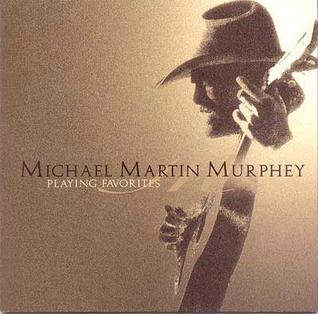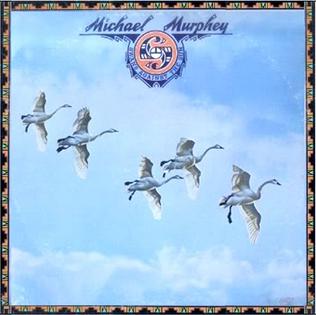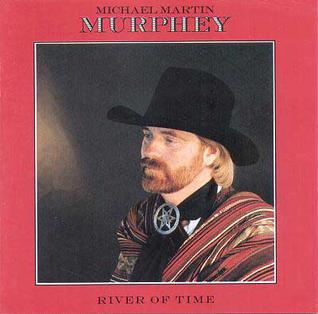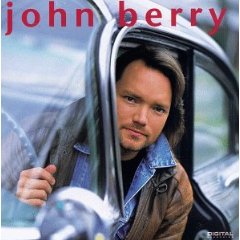
Nobody's Angel is an album by the American country music singer Crystal Gayle. Released in September 1988, the album peaked at number 63 on the Billboard Country Albums Chart.

Playing Favorites is the twenty-third album by American singer-songwriter Michael Martin Murphey. Released August 21, 2001, the album features completely new recordings of eleven of the artist's country, cowboy, and popular crossover classics, as well as one new song. In his liner notes, Murphey writes that "songs are like children; they grow, evolve, change with time." The concept behind Playing Favorites was to document the growth and evolution of his best-loved tunes, using many new musicians and modern recording techniques not available when the original recordings were done.

Cosmic Cowboy Souvenir is the second album by American singer-songwriter Michael Martin Murphey. According to AllMusic, this album established Murphey as a progressive country musician. Murphey's impact on the genre was as such that one of the many names for the genre, "Cosmic Cowboy music", was taken from Murphy's "Cosmic Cowboy, Pt. 1", a song that appears on this album. The album peaked at number 196 on the Billboard 200.

Swans Against the Sun is the fifth album by American singer-songwriter Michael Martin Murphey. The album features performances by John Denver, Charlie Daniels, and Willie Nelson, and peaked at number 44 on the Billboard 200.

Cowboy Songs Four is the twenty-first album by American singer-songwriter Michael Martin Murphey, his fourth album of cowboy songs, and his first album produced by his son, Ryan Murphey. The album features a guest performance by Lyle Lovett on "Farther Down the Line".

The Horse Legends is the twentieth album by American singer-songwriter Michael Martin Murphey. This is Murphey's tribute to the horse and contains a duet with Johnny Cash on "Tennessee Stud", cover versions of Dan Fogelberg's "Run for the Roses" and Gordon Lightfoot's "The Pony Man", and re-recordings of Murphey's "Wildfire" and "The Running Blood". The Horse Legends was the last album Murphey recorded for Warner Bros. Records.

Sagebrush Symphony is the nineteenth album by American singer-songwriter Michael Martin Murphey, his second live album since his 1979 live/studio album Peaks, Valleys, Honkytonks and Alleys, and his first album with a symphony orchestra. Recorded live with the San Antonio Symphony Orchestra, this ambitious album, which presents cowboy songs and poems in a symphonic setting, contains a selection of Murphey's most popular songs, as well as traditional cowboy music. Murphey turns in "an impassioned performance" and the inclusion of guest artists Sons of the San Joaquin, Ric Orozco, Herb Jeffries, and Robert Mirabal "adds to the musical diversity and richness of the album."

Cowboy Songs III – Rhymes of the Renegades is the eighteenth album by American singer-songwriter Michael Martin Murphey and his third album of cowboy songs. The album is devoted to cowboy folklore and true tales of the West and focuses on real-life outlaws, from Jesse James to Billy The Kid to Belle Starr. Murphey performs these songs "with a scholar's eye and a fan's heart."

Cowboy Christmas: Cowboy Songs II is the seventeenth album by American singer-songwriter Michael Martin Murphey, his second album of cowboy songs, and his first album of Christmas music.

Cowboy Songs is the sixteenth album by American singer-songwriter Michael Martin Murphey and his first album of cowboy songs. The album peaked at number 25 on the Billboard Top Country Albums chart.

Land of Enchantment is the fifteenth studio album by American singer-songwriter Michael Martin Murphey. The album reached number 33 on the Billboard Top Country Albums chart.

River of Time is the fourteenth studio album by American singer-songwriter Michael Martin Murphey. The album contains a newly recorded version of "What Am I Doing Hangin' 'Round?" and a duet with his son, Ryan Murphey, on "Talkin' to the Wrong Man" which reached number 4 on the Billboard Hot Country Singles chart in July 1988 and number 1 on the RPM Country Singles chart in Canada. River of Time peaked at number 11 on the Billboard Top Country Albums chart.

Americana is the thirteenth studio album by American singer-songwriter Michael Martin Murphey and his second for Warner Bros. Records. Murphey found a receptive home with the label and began a long association with the label's president and resident producer, Jim Ed Norman. Unlike his previous albums, Americana contains material written mainly by other writers—Murphey only wrote or co-wrote three of the songs. The album's notable tracks include the #1 hit "A Long Line of Love" and the #4 "Face in the Crowd", the latter a duet with singer Holly Dunn. The album peaked at number 32 on the Billboard Top Country Albums chart.

Michael Martin Murphey is the tenth studio album by American singer-songwriter Michael Martin Murphey and his first for Liberty Records. The album peaked at number 14 on the Billboard Top Country Albums chart.

Lone Wolf is the seventh album by American singer-songwriter Michael Martin Murphey. The album peaked at number 99 on the Billboard 200.

Rabbitt is the third studio album by American country music artist Eddie Rabbitt, released in 1977 under the Elektra Records label. The album produced the singles "We Can't Go on Living Like This" and "I Can't Help Myself" which peaked at 6 and 2, respectively, on the United States country singles chart.

Stranger Things Have Happened is the nineteenth studio album by American country music artist Ronnie Milsap, released in 1989. The album produced four singles, two of which claimed the top spot on the Billboard country singles chart, including "A Woman in Love" and "Don't You Ever Get Tired ." The other singles, included "Houston Solution" and the title track, which peaked at #4 and #2 respectively. Of especial note is the song "You Snap Your Fingers ", which made an appearance once before in his career on his album from 13 years prior.

John Berry is the debut studio album by American country music artist of the same name. It was released in June 7, 1993 by Liberty Records. It peaked at #13 on the Top Country Albums chart, and was certified Platinum by the RIAA. Singles released from it include "A Mind of Her Own", "Kiss Me in the Car", "Your Love Amazes Me", "What's In It for Me" and "You and Only You".

Q: Soul Bossa Nostra is a 2010 studio album by Quincy Jones, recorded with various artists. The album was released on November 9, 2010. The title of the album refers to Jones' 1962 instrumental track "Soul Bossa Nova".

Time is the fifth studio album by Paul Overstreet. It was released February 27, 1996. The album peaked at No. 37 on the Billboard 200 chart. The song "We've Got to Keep on Meeting Like This" charted at No. 73 on the Hot Country Songs chart.




















